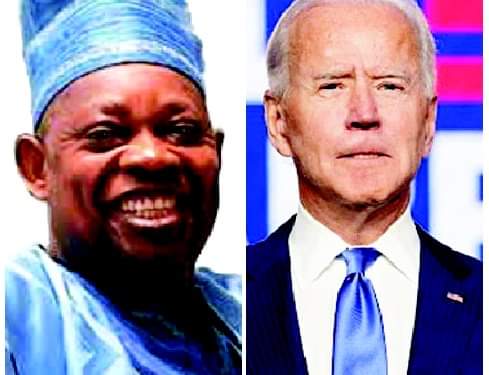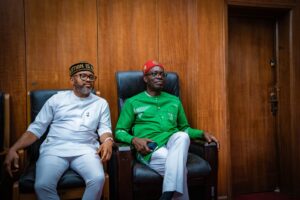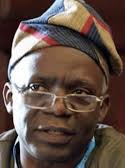
June 12, 1993 and November 3, 2020, are destined to endure as milestones in the history of Nigeria and the United States, respectively.
The one was designed to launch Nigeria on a new socio-political order with the election of a president under a new democratic constitution, ending13 years of military rule diluted with token civilian participation.
In the normal run of things, the other would have registered as just another election held every four years to re-elect a sitting president or to choose a new one. But there was nothing ordinary about Donald Trump, the candidate of the Republican Party, who was seeking re-election.
Trump’s first term has been riotous, and polarizing; an exercise in chicanery and mendacity. He carried on like a modern-day emperor with all the trappings, accountable to no laws or institutions. To re-elect him would be to empower him to indulge even more egregiously in his ill repute.
Yet, this was the choice before the American people: to re-elect the repellent Donald Trump who cannot fake empathy even if his life depended on it, or vote for Democratic candidate Joseph (Joe) Biden. At 78, Biden is four years older than Trump, and a tad slower. On every other political metric, he was consistently rated higher in the polls than Trump, whose ineptitude and venality alone contributed hugely to the deaths of more than 250, 000 Americans from coronavirus disease,
Trump dwells in an alternative universe, governed by “alternative facts” of his own fabrication that could mean one moment, the precise opposite the next moment, and something else in between. Biden projects stability and steadiness, a world rooted in verifiable facts and governed by ascertainable laws.
Given the damage Trump has wrought on the American political landscape, Biden was right to insist that nothing less than decency itself was on the ballot for the election. And by any rational measure, an election between Trump and Biden, the outcome should not even be close. I will return to this theme later.
In the1993 Nigerian election, there were no major issues. The contending parties, the Social Democratic Party (“a little to the Left) and the National Republic Party (“a little to the Right”) were decreed into existence by the military government. Their constitutions and emblems and anthems were of the provenance.
In the American election, the contending parties go far back far more than 200 years ago, to the founding of the Republic. But the Republican Party that entered the 2020 election has very little in common with the GOP.
GOP had transformed to the party of Donald Trump.
In the 2016 election, he ran on, and pursued policies and programmes that scandalised its grandees, and the majority of the electorate, but had gone on to win. By his second coming, its platform, it declared, was “to support the President’s agenda,” pure and simple
In Nigeria’s 1993 election, candidates ran under the constant threat of being banned or disqualified at any time before, during or after the election if they ran afoul of the rules laid down by the military. And it was no idle threat. Many indeed were the candidates who were disqualified, banned, un-banned and re-banned, for the flimsiest of reasons, or for no reasons at all.
Dates and other signposts kept shifting, even as the rules kept changing. Until the eve of the presidential election, no one knew for certain that it would take place, including officials of the body supposed to administer it, the National Electoral Commission. What saved the day was a not-so-subtle warning by the United States Government, per its embassy in Lagos, against further postponement.
The American election was not subject to the whim or caprice price of any individual or institution, Still, it was conducted in an atmosphere that was flagrantly incompatible with democratic principles. You had the incumbent president calling for his opponents to be jailed, turning the machinery of justice against them, and seeking desperately to limit the franchise and to suppress popular participation. You had him ceaselessly impugning the legitimacy and subverting the operational capability of crucial public institutions of which, he was in the final analysis, the chief custodian.
Against a raft of contrived odds, the Nigerian election held as scheduled. The authorities had calculated that no clear winner would emerge, and that massive confusion and disenchantment would ensue. But it would last only a few weeks; law and order would be restored by force or co-optation, and the country would move on. That, at any rate, was their expectation.
But it all went awry. A clear winner emerged. But before his victory could be announced officially, they annulled the entire election, citing irregularities for which they could produce not a shred of evidence. Protests broke out in major cities of the country, in ways and with an intensity the military could not easily contain.
The military did not allow the people’s will to prevail. But it exhausted itself in a crisis of its own making and was forced to vacate the civic space severely discredited.
In the United States, the competent authorities determined with nary a murmur that Joe Biden was the clear winner of the presidential election just concluded. But Trump was waiting for them. It was not nothing that he had for nine months employed his bully pulpit and the twitter handle that was in his hand an instrument of terror to vilify them, cast grave doubt on their competence, their good faith and their decency. He had left nothing to chance.
He was going to win, Trump declared at every stop. The declaration did not spring from mere wishful thinking or even the optimism that animates every political candidate. It has behind it force of certainty. He could not lose. If he did, that result could only have flowed from election rigging and corruption of the foulest kind.
Trump’s last act of desperation was to seek out pledged electors who would abandon Biden at the Electoral College and cast their ballots for Trump instead. He found none.
In Nigeria, he would have succeeded with the right combination of bribes, cajolery, threats, and blackmail. It was this combination that turned winners into losers and losers into winners in the 1993 election.
By any rational consideration, a contest between Biden and Trump was not supposed to be close. Even viewed through the distorting mirror of the Electoral College, this one isn’t. But politics is not a rational pursuit. And so, here we are, with the deluded Donald Trump grasping at every straw, real or imagined, in a craven bid to invalidate the election outcome, the merest assertions on which he had relied to peddle his smears and his crack-brained conspiracy theories, now of no avail.
Until they happened, Nigerians never believed that the events subsumed in the “June 12” debacle could ever happen in their country. Such events took place in those lands near and far they had come to regard as “unfortunate,” or only as the wildest aberrations.
Until Donald Trump came along, few Americans believed that a person of his record and predilections could win election as president; the system of political recruitment and promotion would eliminate such a person on the threshold and clear the deck for those who could be expected to pursue the quest with honour and moral purpose.
Nothing in the constitution, history, political structures, laws or institutions of Nigeria operated as a bulwark against the depredations of the military, just as nothing in the laws and institutions of the United States nor in its vaunted exceptionalism, foreclosed the rise of Donald Trump. And nothing would stand in the way of his political resurrection in an unaltered form.
Here and yonder and everywhere, eternal vigilance remains the price of liberty.












